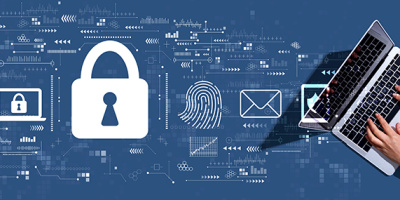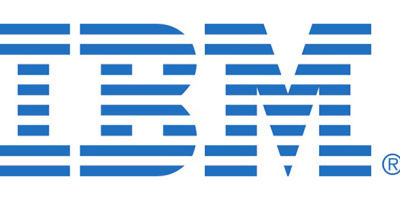For the seventh time in as many years, the Tech-Security Conference returned this week to Southern California as part of a cross-country tour in which attendees heard both technical presentations and saw the latest in Internet security products. Those who attended were there because they needed to keep their employers’ or clients’ networks safe from threats, external as well as internal.
Topics at the conference, held at the Marriott Hotel in Woodland Hills, covered ways to strengthen incident response, email security, threats and countermeasures, secure business solutions, end-point security solutions, LAN security, the security landscape, and data loss and leakage. A final indicator of how interested an attendee was in the overall conference might have been measured by whether she stayed until the day's final talk by IBM’s Will Irace describing the holistic approach that IBM is taking in addressing security threats.
IBM's presentation introduced a new data protection model to guard against data loss. It employs roadblocks, password protected ZIP files, visible monitoring, just-in-time education, full disk encryption, network forensics, and network appliances.
Among the sobering statistics to emerge from the conference were:
· Some 673,000 laptops were lost in 2005
· An estimated 11,000 were left behind in taxis.
· The eventual whereabouts of all the laptop data is anyone's guess!
IBM’s ISS division claims that stopping data leakage requires a comprehensive suite of security software and services that begins with an assessment/discovery process and includes security training prior to installation of the solutions required.
Others at the conference concerned with data leakage prevention (DLP) included Carlos Sanz of Lumension Security (www.lumension.com) who said DLP is a huge issue today and noted that in California, a loss of data in the financial services industry requires immediate public disclosure.
Sarah Jacks of Sendio (www.sendio.com) was there to show how the company's anti-spam appliance does battle with the world's purveyors of malware. Like many other point solutions, the Sendio ICE Box is a separate server that houses the software products and provides a safe and stable environment from which to fight malware flooding the Internet and nosing into companies' email servers.
Dyntek’s Clancy Barham (www.dyntek.com) was demonstrating how unique each person's keyboarding style is. Think we all type alike? The company's Bio Password software can detect the difference between your entering your ID and password and someone else typing in the exact same phrases.
Chris Bramhall at TippingPoint (www.tippingpoint.com) spoke about the firm's Intrusion Prevention System (IPS), saying that compliance is driving many activities in network security today and that California has a record for stronger compliance measures than most.
Pete Elliot and Sandy Nannini of Key Information Systems (www.keyinfo.com) demonstrated the breadth of IBM/ISS’ network security solutions and stressed the importance of Key’s assessment process as a critical first step in initiating an analysis of an enterprise’s network security needs.
Finally, Don Wisdom of Datalink Networks (www.datalinknetworks.net), a reseller of security, network, server and storage solutions, identified what he believes today's preeminent security issues are as the following:
1. What are effective ways to secure wireless networks?
2. The convergence of data, wireless, and VOIP networks
3. The trend toward security point-products being absorbed by larger end-to-end solution providers
4. The emergence of network forensics
What did this reporter leave with from the conference? First, I concluded that the little guys (single product point solutions) are being gobbled up by those offering bigger end-to-end solutions. Second, many of the point-solution ISVs prefer to offer their software in an appliance.
Among the miscellaneous bits of trivia from the show that suggest malware is a problem growing costlier by the day are the following:
· It costs $113 per employee per year to find email erroneously stopped by spam filters (Source: Sendio).
· Some 36 percent of firms in one study lost business because email went astray.
· One law firm was fined by a district court because a critical message was lost in a spam filter.
The Data Connectors-sponsored conference moves on to Nashville Feb. 6, then San Jose on Feb. 20. For the full schedule, visit http://www.dataconnectors.com/.





















 More than ever, there is a demand for IT to deliver innovation. Your IBM i has been an essential part of your business operations for years. However, your organization may struggle to maintain the current system and implement new projects. The thousands of customers we've worked with and surveyed state that expectations regarding the digital footprint and vision of the company are not aligned with the current IT environment.
More than ever, there is a demand for IT to deliver innovation. Your IBM i has been an essential part of your business operations for years. However, your organization may struggle to maintain the current system and implement new projects. The thousands of customers we've worked with and surveyed state that expectations regarding the digital footprint and vision of the company are not aligned with the current IT environment. TRY the one package that solves all your document design and printing challenges on all your platforms. Produce bar code labels, electronic forms, ad hoc reports, and RFID tags – without programming! MarkMagic is the only document design and print solution that combines report writing, WYSIWYG label and forms design, and conditional printing in one integrated product. Make sure your data survives when catastrophe hits. Request your trial now! Request Now.
TRY the one package that solves all your document design and printing challenges on all your platforms. Produce bar code labels, electronic forms, ad hoc reports, and RFID tags – without programming! MarkMagic is the only document design and print solution that combines report writing, WYSIWYG label and forms design, and conditional printing in one integrated product. Make sure your data survives when catastrophe hits. Request your trial now! Request Now. Forms of ransomware has been around for over 30 years, and with more and more organizations suffering attacks each year, it continues to endure. What has made ransomware such a durable threat and what is the best way to combat it? In order to prevent ransomware, organizations must first understand how it works.
Forms of ransomware has been around for over 30 years, and with more and more organizations suffering attacks each year, it continues to endure. What has made ransomware such a durable threat and what is the best way to combat it? In order to prevent ransomware, organizations must first understand how it works. Disaster protection is vital to every business. Yet, it often consists of patched together procedures that are prone to error. From automatic backups to data encryption to media management, Robot automates the routine (yet often complex) tasks of iSeries backup and recovery, saving you time and money and making the process safer and more reliable. Automate your backups with the Robot Backup and Recovery Solution. Key features include:
Disaster protection is vital to every business. Yet, it often consists of patched together procedures that are prone to error. From automatic backups to data encryption to media management, Robot automates the routine (yet often complex) tasks of iSeries backup and recovery, saving you time and money and making the process safer and more reliable. Automate your backups with the Robot Backup and Recovery Solution. Key features include: Business users want new applications now. Market and regulatory pressures require faster application updates and delivery into production. Your IBM i developers may be approaching retirement, and you see no sure way to fill their positions with experienced developers. In addition, you may be caught between maintaining your existing applications and the uncertainty of moving to something new.
Business users want new applications now. Market and regulatory pressures require faster application updates and delivery into production. Your IBM i developers may be approaching retirement, and you see no sure way to fill their positions with experienced developers. In addition, you may be caught between maintaining your existing applications and the uncertainty of moving to something new. IT managers hoping to find new IBM i talent are discovering that the pool of experienced RPG programmers and operators or administrators with intimate knowledge of the operating system and the applications that run on it is small. This begs the question: How will you manage the platform that supports such a big part of your business? This guide offers strategies and software suggestions to help you plan IT staffing and resources and smooth the transition after your AS/400 talent retires. Read on to learn:
IT managers hoping to find new IBM i talent are discovering that the pool of experienced RPG programmers and operators or administrators with intimate knowledge of the operating system and the applications that run on it is small. This begs the question: How will you manage the platform that supports such a big part of your business? This guide offers strategies and software suggestions to help you plan IT staffing and resources and smooth the transition after your AS/400 talent retires. Read on to learn:
LATEST COMMENTS
MC Press Online